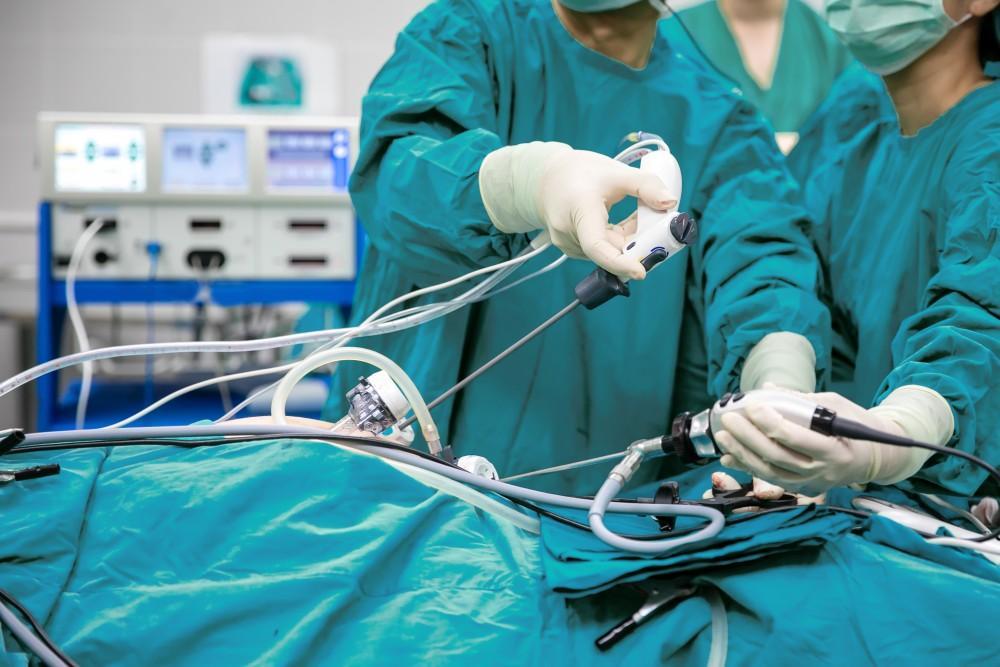
5 Compelling Benefits of Laparoscopic Surgery

Facing surgery a half-century ago was a much riskier proposition because most procedures were open — meaning the surgeon had to make larger incisions for manual and visual access.
Today, doctors’ hands and eyes are helped and enhanced by cutting edge technology, including lighted cameras and specialized tools that allow unprecedented accuracy and less collateral damage for most common surgeries.
In fact, of the 40 million-50 million surgical procedures performed each year in the United States, minimally invasive techniques like laparoscopy are more the rule than the exception, which is great news for patients.
At Rockwall Surgical Specialists, our highly skilled and experienced team of general surgeons is well versed in laparoscopic surgery. Here, we share why this approach is the gold standard.
1. Laparoscopy — a versatile tool
As we described briefly, laparoscopy is a technique in which we use a lighted, high-definition camera as our eyes and specialized tools as our hands. This technology means we only need to make small incisions, through which we thread the surgical equipment.
Then, using a monitor to visualize the surgical site, we can perform the procedure using tools that accurately translate the movement of our hands in small spaces.
We use this approach for most of the surgeries we perform, such as colon surgery, appendectomies, weight loss surgery, gallbladder surgery, and hernia repairs, to name just a few.
2. Less collateral tissue damage
One of the bigger benefits of laparoscopic surgery is our ability to reduce collateral tissue damage during your procedure. For example, if we want to perform a hernia repair, instead of making an incision across your lower abdomen that cuts through muscles, skin, and other soft connective tissues, we make only a few small incisions that are less than an inch.
Then, using these tiny incisions, we thread our instruments through in a way that minimizes disturbance of surrounding organs and tissues.
3. Reduced blood loss and risk of infection
Because the incisions are small and collateral damage is kept to a minimum, there’s also far less bleeding with laparoscopic surgery than there is with open surgery. And because the incisions aren’t large, there’s a lower risk of infection.
4. Less time in the hospital
With laparoscopy, we’ve been able to greatly reduce hospital stays, and even eliminate them in many cases. For example, of the more than 1.6 million hernia repairs performed in the US each year, many are done on an outpatient basis, which means no hospital stay at all.
This scenario certainly plays out with our laparoscopic surgeries, and we’re able to get you back to the comforts of your own home in less time than we could with open surgeries.
5. Shorter recovery time
As you might imagine, each benefit that we’ve covered leads to one great conclusion — laparoscopy significantly reduces recovery time. Our goal is to make your surgical journey as smooth as possible, and laparoscopy is key to these efforts.
If you have more questions about laparoscopy and whether it makes sense for your surgical needs, please contact Rockwall Surgical Specialists. We have locations in Rockwall, Rowlett, Greenville, Terrell, and Forney, Texas, for your convenience.
You Might Also Enjoy...


Dietary Do’s and Don’ts After Acid Reflux or Hiatal Hernia Surgery

5 Best Practices for Getting Ready for Your Upcoming Surgery

Here's Why Your Doctor May Recommend a Thyroidectomy

4 Signs It's Time to Consider a Nissen Fundoplication for GERD

